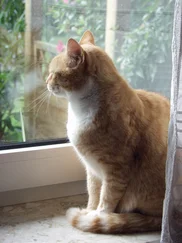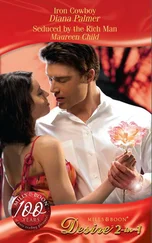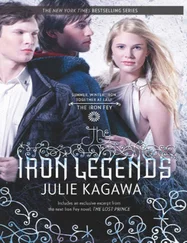' Wag in die motor, ek sal die polisie skakel,' he called down to me. A boy with pimples playing this self-important, murderous game. Wait in the car, I will call the police, I shook my head, went on shaking my head. He was talking to someone beside him, someone I could not see. He was smiling. No doubt they had been watching from the beginning, had their own opinion of me. A mad old do-gooder caught in the rain, bedraggled as a hen. Were they right? Am I a do-gooder? No, I have done no good that I can think of. Am I mad? Yes, I am mad. But they are mad too. All of us running mad, possessed by devils. When madness climbs the throne, who in the landscapes contagion?
'Don't call the police, I can take care of myself,' I called. But the murmuring, the sideways looks continued. Perhaps they were already on the radio.
'What do you think you are doing?' I called up to the boy. The smile stiffened on his lips. 'What do you think you are doing?' I shouted, my voice beginning to crack. Shocked, he stared down. Shocked to be screamed at by a white woman, and one old enough to be his grandmother.
A man in battledress came over from the next vehicle in the line. Levelly he regarded me. ' Wat is die moeilikheid?' he asked the boy in the troop-carrier. 'Nee, niks moeilikheid nie.' No problem. 'Net hierdie dame wai wil weet wot aangaan.'
'This is a dangerous place to be, lady,' he said, turning to me. An officer, evidently. 'Anything can happen here. I am going to send for an escort to take you back to the road.'
I shook my head. I was in command of myself, I was not even tearful, though I did not put it past myself to break down at any moment.
What did I want? What did the old lady want? What she wanted was to bare something to them, whatever there was that might be bared at this time, in this place. What she wanted, before they got rid of her, was to bring out a scar, a hurt, to force it upon them, to make them see it with their own eyes: a scar, any scar, the scar of all this suffering, but in the end my scar, since our own scars are the only scars we can carry, with us. I even brought a hand up to the buttons of my dress. But my fingers were blue, frozen,
'Have you seen inside that hall?' I asked in my cracked voice. Now the tears were beginning to come.
The officer dropped his cigarette, ground it into the wet sand.
'This unit hasn't fixed a shot in twenty-four hours,' he said softly. 'Let me suggest to you: don't get upset before you know what you are talking about. Those people in there are not the only ones who have died. The killings are going on all the time. Those are just the bodies they picked up from yesterday. The fighting has subsided for the time being, but as soon as the rain stops it will flare up again, I don't know how you got here – they should have closed the road – but this is a bad place, you shouldn't be here. We'll radio the police, they can escort you out. '
'Ek het reeds geskakel,' said the boy in the troop-carrier.
'Why don't you just put down your guns and go home, all of you?' I said. 'Because surely nothing can be worse than what you are doing here. Worse for your souls, I mean.'
'No,' he said. I had expected incomprehension, but no, he understood exactly what I meant. 'We will see it through now. '
I was shivering from head to foot. My fingers, curled into the palms of my hands, would not straighten. The wind drove the sodden clothing against my skin.
'I knew one of those dead boys,' I said. 'I have known him since he was five. His mother works for me. You are all too young for this. It sickens me. That is all.'
I drove back, to the hall and, sitting in the car, waited. They were bringing the bodies out now. From the gathering crowd I felt a wave of something come out at me: resentment, animosity. Worse than that: hatred. Would it have been different if I had not been seen speaking to the soldiers? No.
Mr Thabane came over to see what I wanted. 'I am sorry, but I am not sure of the way back,' I said.
'Get on to the tar road, turn right, follow the signs,' he said curtly.
'Yes, but which signs?'
'The signs to civilization.' And he turned on his heel.
I drove slowly, in part because of the wind beating into my face, in part because I was numb in body and soul. I strayed into a suburb I had never heard of and spent twenty minutes driving around indistinguishable streets looking for a way out. At last I found myself in Voortrekker Road. Here, fox the first time, people began to stare at the car with the shattered windscreen. Stares followed me all the way home.
The house felt cold and alien. I told myself: Have a hot bath, rest. But an icy lethargy possessed me. It took an effort to drag myself upstairs, peel off the wet clothes, wrap myself in a robe, get into bed. Sand, the grey sand of the Cape Flats, had crusted between my toes. I will never be warm again, I thought. Vercueil has a dog to lie against, Vercueil knows how to live in this climate. But as for me, and for that cold boy soon to be put into the earth, no dog will help us any more. Sand already in his mouth, creeping in, claiming him.
Sixteen years since I shared a bed with man or boy. Sixteen years alone. Does that surprise you?
I wrote. I write. I follow the pen, going where it takes me. What else have I now?
I woke up haggard. It was night again. Where had the day gone? The light in the toilet was on. Sitting on the seat, his trousers around his knees, his hat on his head, fast asleep, was Vercueil. I stared in astonishment.
He did not wake; on the contrary, though his head lolled and his jaw hung open, he slept as sweetly as a babe. His long lean thigh was quite hairless.
The kitchen door stood open and garbage from the overturned bucket was strewn over the floor. Worrying at an old wrapping-paper was the dog. When it saw me it hung its ears guiltily and thumped its tail. 'Too much!' I murmured: 'Too much!' The dog slunk out.
I sat down at the table and gave myself up to tears. I cried not for the confusion in my head, not for the mess in the house, but for the boy, for Bheki. Wherever I turned he was before me, his eyes open in the look of childish puzzlement with which he had met his death. Head on arms I sobbed, grieving for him, for what had been taken from him, for what had been taken from me. Such a good thing, life! Such a wonderful idea for God to have had! The best idea there had ever been. A gift, the most generous of all gifts, renewing itself endlessly through the generations. And now Bheki, robbed of it, gone, torn away!
'I want to go home!' So 1 had whinged, to my shame, to Mr Thabane the shoe salesman. From an old person's throat a child's voice. Home to my safe house, to my bed of childhood slumber. Have I ever been fully awake? I might as well ask: Do the dead know they are dead? No: to the dead it is not given to know anything. But in our dead sleep we may at least be visited by intimations. I have intimations older than any memory, unshakeable, that once upon a time I was alive. Was alive and then was stolen from life. From the cradle a theft took place: a child was taken and a doll left in its place to be nursed, and reared, and that doll is what I call I.
A doll? A doll's life? Is that what I have lived? Is It given to a doll to conceive such a thought? Or does the thought come and so as another intimation, a, flash of lightning, a piercing of the fog by the lance of an angel's intelligence? Can a doll recognize a doll? Can a doll know death? No: dolls grow, they acquire speech and gait, they perambulate the world; they age, they wither, they perish; they are wheeled into the fire or buried in the earth; but they do not 'die. They exist forever in that moment of petrified surprise prior to all recollection when a life was taken away, a life not theirs but in whose place they are left behind as a token. Their knowing a knowledge without substance, without worldly weight, like a doll's head, itself, empty, airy. As they themselves are not babies but the ideas of babies; more round, more pink, more blank, and blue-eyed than a baby could, ever be, living not life but an idea of life, immortal, undying, like all ideas.
Читать дальше












